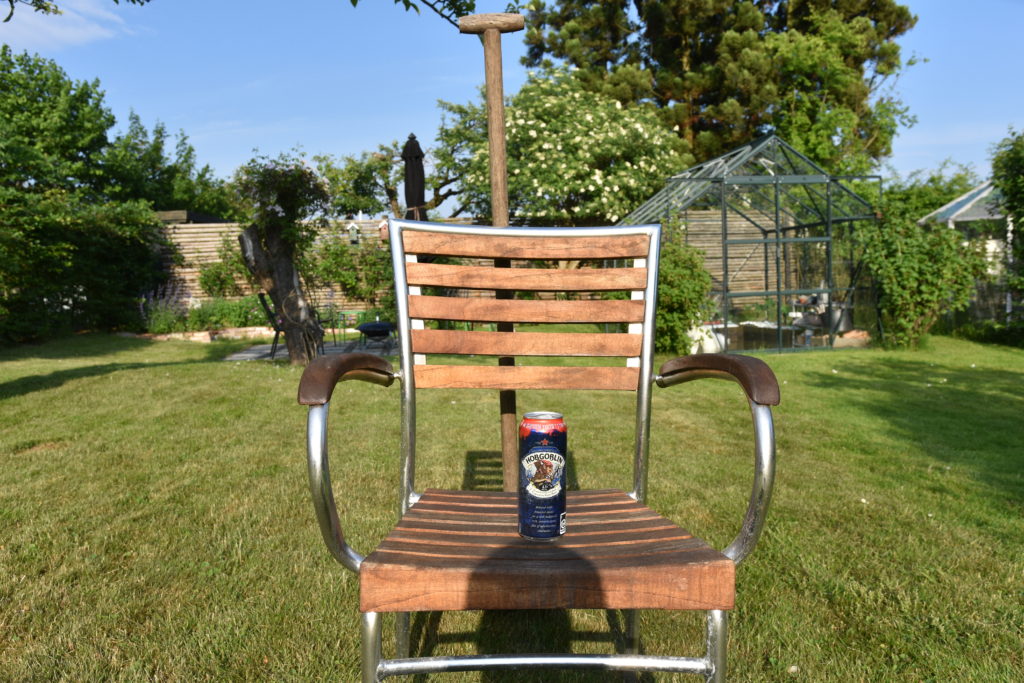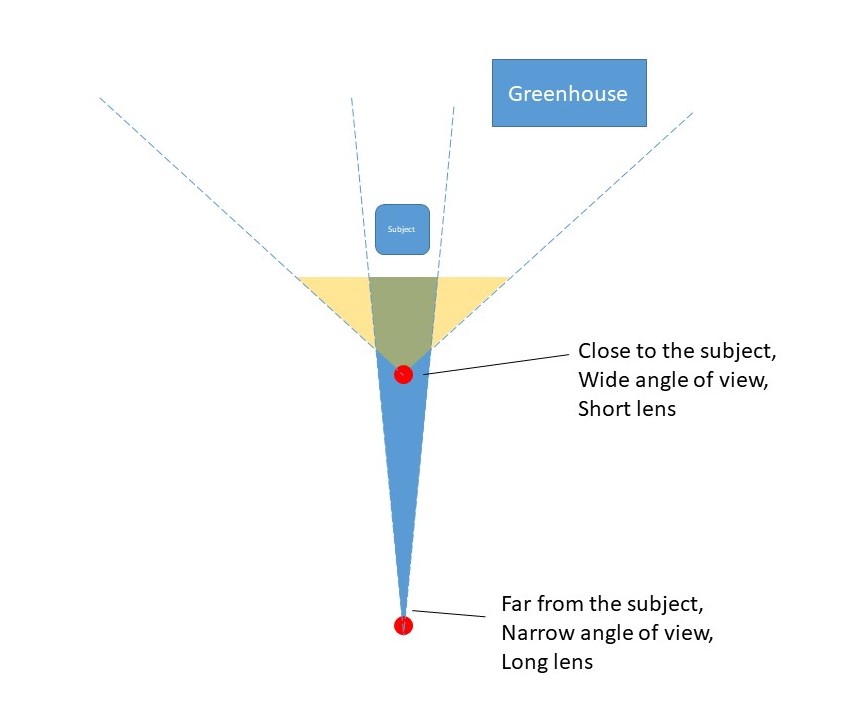When you use a long lens in photography relative to a short lens, the long lens will – all things being equal – give the impression of the picture being compressed. On other words, the background will appear to be moving closer to the subject.
Intuitively, you would expect that if you took a picture with a short lens, then mounted a long lens and walked back until your subject would fill the same in the frame, then the two pictures would be about the same. But they are not. For two reasons. One is compression, the background will appear to have moved closer to the subject, and the other is field of view. The long lens sees a much narrower part of the surroundings of the subject. Sounds complicated? Lets look at some examples.
The first picture here is taken at 18mm focal length:

You can see that I have put a shovel behind the chair to help me size the subject in the frame as I start to walk backward. Notice the greenhouse to the right.
Next picture is shot at 70mm:

Notice how the greenhouse to the right has disappeared due to the more narrow field of view. And the fence at the back of the garden seems closer – the picture is more “compressed”. Hence the name. And notice also how the arms on the chair no longer point so much outwards, they appear more parallel in the 70mm picture.
If we take it one step further to 135 mm:

You will notice that the black chair behind the brown chair in the foreground suddenly appears. This is because I have walked so far back and the field of view is so narrow that the brown chair no longer “shades” the black chair. And the fence has moved even closer. And finally 300mm:

More of the same: fence is closer, black chair even more visible, greenhouse long gone, etc.
What happens is illustrated below. As you can see, the angle of view is much more narrow with a long lens and hence the greenhouse disappears from the frame in the examples above.

Did you notice how the chair looked more and more natural as the focal length increased? In the first picture the arms pointed very much outwards, but this became better and better with increasing focal length. This is useful for portrait photographers, because shooting too close to your subject with a too wide lens will give a less pleasing picture. You can try to take a selfie with your nose into the lens, and I can assure you that it will not be pleasing! Therefore many portrait photographers prefer relatively long lenses, typically 85 to 135mm.
You will also see that the composition of your picture changes when the focal length is increased. There is less distracting elements in the pictures with the long lens, simply because the angle of view is more narrow. So you can make a picture where the subject is less disturbed by distracting elements around it.
